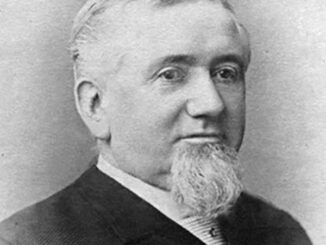
The Pullman porters were some of the first African American men to have the opportunity to work in professional, well-paying jobs after the Civil War. However, they faced significant discrimination and mistreatment on the job, and their work was often grueling and exhausting. Despite these difficulties, the Pullman porters played an important role in the civil rights movement and in the struggle for economic and social equality for African Americans.

The Pullman Palace Car Company was founded in 1867 by George Pullman, a businessman who wanted to provide luxury train travel for the wealthy. The company quickly became one of the largest employers of African American men in the country. The Pullman porters were responsible for a wide range of duties, including making beds, cleaning and maintaining the sleeping cars, carrying luggage, and serving food and drinks. They were also responsible for the safety and comfort of the passengers and were expected to be polite and attentive at all times.
In spite of the important role that the Pullman porters played in the Pullman Palace Car Company, they faced significant discrimination and mistreatment on the job. They were paid low wages and were expected to work long hours with little time off. They were also subject to racist and discriminatory treatment from both the company and the passengers. Many of the porters were forced to sleep in the baggage cars or on the floors of the sleeping cars, and they were not provided with adequate food or medical care.
The working conditions of the Pullman porters were so difficult that they began to organize and unionize in the 1920s. The Brotherhood of Sleeping Car Porters was founded in 1925 and became the first African American labor union to be recognized by the American Federation of Labor. The union fought for better wages, working conditions, and job security for the porters.
The Pullman porters also played an important role in the civil rights movement. Many of the porters were involved in the struggle for economic and social equality for African Americans. They were active in the National Association for the Advancement of Colored People (NAACP) and other civil rights organizations. The Pullman porters were also involved in the Montgomery Bus Boycott of 1955, which was a major event in the civil rights movement.
Despite their many contributions to the labor movement and the civil rights movement, the Pullman porters were not able to achieve the level of recognition and respect that they deserved. The company refused to negotiate with the union and continued to treat the porters poorly. The Pullman Palace Car Company went bankrupt in the 1930s and was eventually taken over by the federal government. The last Pullman sleeping car trains were retired in the 1960s and the Pullman porters were out of a job.



Be the first to comment